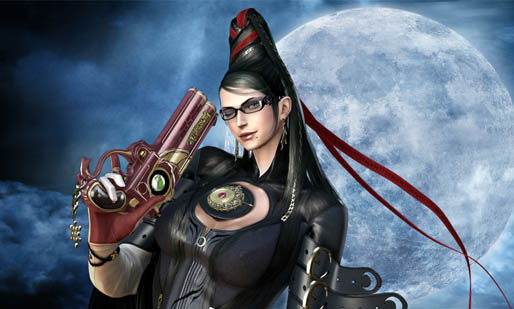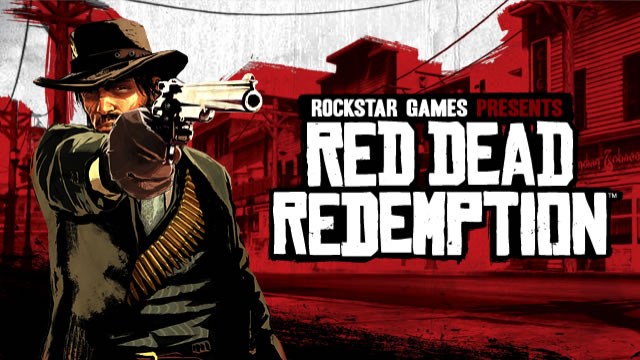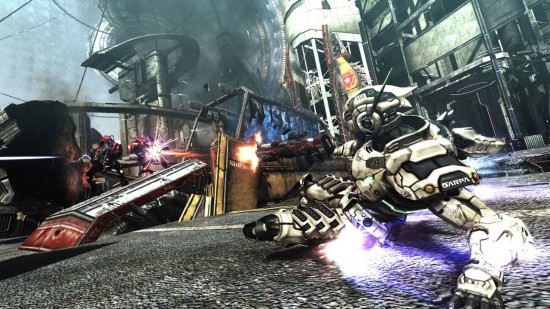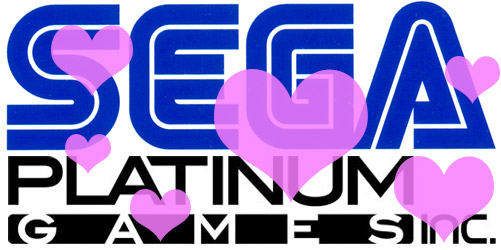The closure of Clover Studio several years back was a sad day for the gaming industry, not only because they had just developed a multiple Game of the Year award winner (the beautiful Okami) but also because it was such a shame to see the developer of some of Capcom’s most interesting and innovative content getting the axe. It was a dose of reality: a reminder that originality and innovation doesn’t always pay off (and SEGA knows that probably better than anybody) in an industry that’s rapidly becoming more and more hit-driven and sequel-based.
The good news came shortly after, when it was revealed that the heads of Clover Studios had no intention of folding back inside Capcom. Instead, key developers Atsushi Inaba, Hideki Kamiya, and co. formed what would eventually become PlatinumGames, taking many former Clover Studios developers with them. In a move of pure brilliance, SEGA picked up the partnership, what turned out to be an incredible fit.
The deal agreed upon was four titles, and some stylish, memorable, and truly unique and fun games were produced for SEGA as a result. They were the hilariously violent MadWorld, the devilishly charming (horrible pun intended) Bayonetta, the DS RPG Infinite Space, and (my personal favorite) Shinji Mikami’s Vanquish. Since then, SEGA and Platinum Games have extended their deal to include at least 1 more game, the upcoming MMO beat-em-up Anarchy Reigns. The question is, will SEGA simply let PlatinumGames go off to some other publisher after this partnership has resulted in some of this console generation’s more iconic new IP?
I hope not, and here I’ll discuss the reasons why I believe that it’s important for SEGA to keep their partnership with PlatinumGames for as long as they possibly can.
That SEGA style
If there’s one thing that SEGA has a history of, it’s their production of games with an over-the-top sense of style. It’s pretty amazing to look back at the types of stuff they’ve put out, especially on the Dreamcast, where, more than ever, SEGA’s development studios seemed to have been given the creative freedom to go completely nuts. You just wouldn’t see games like Jet Grind Radio (a cel shaded, music-jamming, graffiti-spraying trip through a fictional Tokyo on jet-powered aggressive inline skates) coming from anybody else. As the years have gone on, however, we’ve seen SEGA conforming more and more to the rest of the industry, and like a hippie getting busted and being forced to take a monthly drug test, the results weren’t always pretty. The Marvel and AvP licenses having been pretty much wasted, and with the Sonic series having lost its way, there were a couple of rough years for SEGA as they tried to find their identity in a changing industry.
One of the best decisions they made, and arguably, the start of their comeback, was to form this publishing deal with Platinum Games, a studio with many of the ideals and goals that seem right out of Dreamcast-era SEGA. MadWorld, the black and white, ultraviolent Wii action game, was a risky move, and while it ultimately may not have paid off financially for them, it got Platinum’s foot in the door, building up their credibility among gamers for their next, Bayonetta, their most critically-acclaimed effort to date and their most successful as far as sales numbers are concerned. Despite a puzzling lack of marketing, their next HD effort, Vanquish, evidently found success as well. These games were all stylish, all new IP, all completely different from each other (and much of the rest of the games in the industry) and all wonderfully inventive. In other words, PlatinumGames is the closest that SEGA’s been in recent years to capturing that same sense of “wacky and unpredictable” style that used to be their signature.
Platinum’s titles have all been new IP, which alone is a risk. New IP that aren’t shooters often seem to have difficulty getting off the ground, especially ones as Japanese and stylish (and M-rated) as a majority of Platinum Games’ lineup has been. It’s only taken then a few games, but it seems that Platinum has already established itself as someone to “keep an eye on” for hardcore gamers, and once a developer becomes a brand name, that’s when they really arrive. That’s when they get the freedom to make the types of games they want to make, along with the security that comes with having a fanbase who will buy all of them no matter what.
Brand name
The best example of a successful brand name that I can think of is Rockstar Games. Years of releasing high quality (and increasingly successful) video games has granted them the freedom to develop the likes of the ridiculously expensive Red Dead Redemption and the upcoming LA Noire, and these games sell millions right off the bat just because of the Rockstar Games name on the box. Of course, it helps that these are great games and they’re marketed incredibly well, but what gets people who otherwise wouldn’t be interested in buying a Western to pick up a game like Red Dead Redemption is “hey…it’s from the makers of GTA!”
Not only would PlatinumGames building an even bigger brand name help themselves and fans of Japanese-developed games, but it would help SEGA achieve the same thing as well. Having great and successful PlatinumGames titles released under the SEGA name would further boost SEGA’s own brand and provide them with the new IP and the risky, stylish creativity that SEGA’s Japanese studios, let’s face it, have had no choice but to take a step back from for financial reasons. A more permanent partnership with PlatinumGames would greatly benefit SEGA in that sense.
Mostly a perfect match
SEGA and Platinum definitely share a style and a history of delivering unique experiences that aren’t available anywhere else. It helps that PlatinumGames’ software and characters fit in perfectly with SEGA’s own, and SEGA does have that long history of marketing games such as these to hardcore gamers. Though this would seem to be a perfect fit, that’s not to say there aren’t some kinks to work out. Marketing is the biggest factor. Vanquish was a game that, at least on the surface, appeared to be similar to Gears of War. This of course wasn’t the case, and a few minutes of playing it would reveal the differences between the two, but the game looked like a Japanese Gears of War. Due to the incredible popularity Gears of War has achieved in the West, it was baffling to see SEGA devote so seemingly little to its marketing budget. Vanquish and TV spots would have gone hand in hand, especially given its look as a “Gears of War” type shooter with bullet time and sick combat moves….yet that didn’t happen in North America. The game was moderately successful regardless of its low-key release, but it’s sad to think how much bigger it could have been had SEGA demonstrated a bit more confidence in its selling potential. Likewise, I don’t think the public at large was even aware of Infinite Space, the black sheep of the lineup, to be sure, but still, somewhat of a missed opportunity.
How awesome would this commercial have looked to a North American audience?
That said, SEGA seems to be doing something right. While under Capcom, Clover Studios didn’t manage to achieve enough success to be deemed worthy of keeping open. With SEGA’s help, PlatinumGames has, on the other hand, developed successful new IP that are steadily building up their own unique brand name. It’s something that should be allowed to continue and I don’t see why SEGA can’t remain a part of this process.
Platinum trying to save Japanese gaming
This editorial has been in my mind for a long time. I began to form ideas for it after playing Vanquish, which was not only one of the only squad-based third person shooters that I’ve ever been able to get into, but it also happened to be the most fun and exhilerating action game experience I’ve had since…well, I can’t even think of the last time. What inspired me to finally sit down and write this was Platinum’s recent comments regarding the gaming industry in general, especially the Japanese gaming industry. As the expenses of game development raise the stakes for publishers, true creativity and invention seems to be getting fewer and farther between. Platinum says that, going forward, their aim is to breathe life back into the Japanese gaming industry, and I can’t think of a better partner for them to begin this mission with than SEGA. Here’s hoping for many more SEGA/PlatinumGames collaborations.
And damnit, go play Vanquish!









I'm about to go to bed I'll read this in the morning but I skimmed over it and I like what I see.
I totally agree that Sega and Platinum games have a style that goes well togeather and I would be really sad to see them go seporate ways.
For instance I find all of the Platinum games remind me of Sega games in one way or another.
Infinate Space reminded me or Skies of Arcadia, in a way.
MadWorlds style art reminded me somewhat of Jet Set Radio
Vanquish reminded me strongly of GunValkyrie
Bayonetta of PS2 Shinobi (Although of course it's closer to DMC)
Anarchy Reigns reminds me strongly if SpikeOut/Streets of Rage
I think PG games are closer in style to Capcom rather than Sega, the only game I thought was SEGA-ish was Vanquish.
I am on the fence about this as I want to see something new from Smilebit or ObaWorks (Overworks), as right now it seems that resources that should've been given to them to make new ips went to PG.
Although I am not disputing their greatness, but I would rather have SEGA AM teams save Japanese gaming than PG.
"I think PG games are closer in style to Capcom rather than Sega, the only game I thought was SEGA-ish was Vanquish."
The only one I found resembled anything Capcom-ish was Bayonetta and only because of DMC.
"I am on the fence about this as I want to see something new from Smilebit or ObaWorks (Overworks), as right now it seems that resources that should’ve been given to them to make new ips went to PG."
Hm…Overworks developed Valkyria Chronicles and its sequels and people from its staff worked on 7th Dragon.
Smilebit really doesn't exist anymore, they just make the Mario and Sonic Olympics games under the Sega Sports banner.
"I think PG games are closer in style to Capcom rather than Sega,"
I'd agree with that, but Capcom did put some great games on the Dreamcast so maybe that's why I'm making the connection.
I said ObaWorks, for Noriyoshi Oba creator of Shinobi, Streets of Rage, and the recent PS2 Blood Will Tell.
He has disappeared even though he doesn't appear to have resigned.
Since I am a fan of him and not Tenchu, DMC, Bayonetta etc. I don't feel to good about PG working with SEGA.
I much rather have the AM Teams save the JP industry cause without them, the SEGA I grow up with would cease to exist.
You should definitely check out Vanquish.
I like my games to have heavy story like Alan Wake.
Not Lost Planet.
So even if it's an incredibly solid and fun game, no story = no play?
Vanquish has tons of cutscenes, Cube. And they're really fun to watch. The dialogue's just pretty campy.
@ Barry: I tried playing Lost Planet, it is supposed to be solid fun but I was bored to Hell. The game pisses me off so much as it is the only game on my profile without a single acheivement and I can't even delete it.
@ -nSega54-: Shinji Mikami is probably my favorite designer from Platinum, so sooner or later I might try it but the game has to be reallly cheap first.
Cube you are weird.
90% of Segas games are not story driven but arcadey, platformy, actiony games with storylines that only exist to set up the levels/gameplay etc.
Sometimes I wonder if you just make up your opinions and preferences as you go.